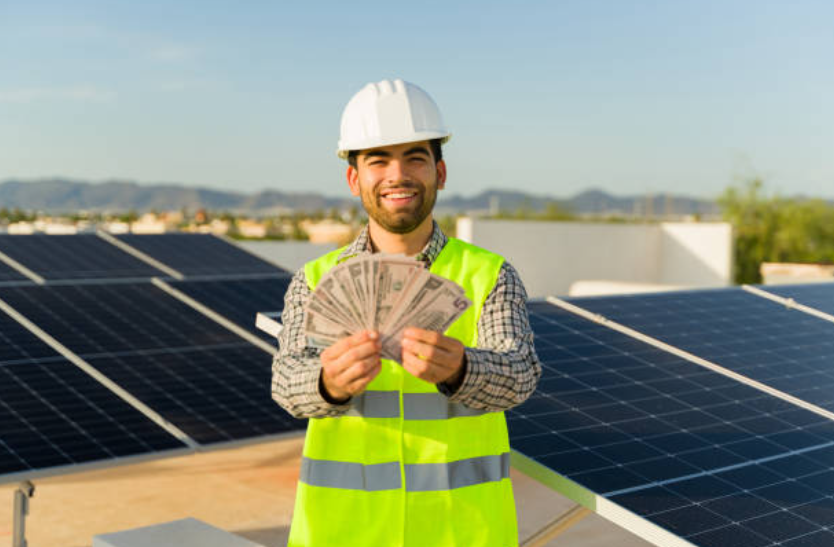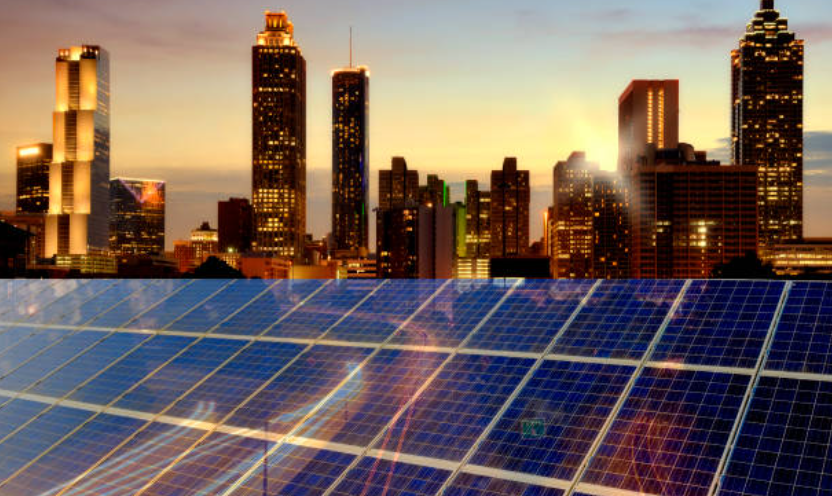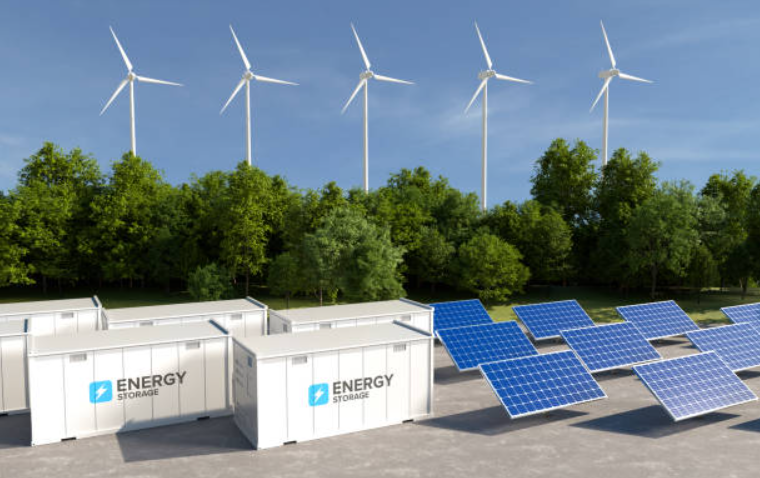Understanding Solar Panel Efficiency
Of all the factors that one has to consider while investing in solar energy, the efficiency of the solar panels is paramount. It describes the percentage of sun rays a given solar panel changes into usable electricity. The efficiency of a certain solar panel shows its effectiveness in leveraging solar energy in the generation of power, thus influencing both energy savings and revenues that may accrue from sell-back.
How Is Solar Panel Efficiency Measured?
The efficiency of solar panels is usually expressed as a percentage. It is the ratio between the amount of sunlight falling on the panel and the electrical output. For example, if the solar panel has an efficiency of 20%, then 20% of the sunlight that falls on the solar panel is converted to usable electricity. This measure involves several variables, including:
- Irradiance Levels: The amount of solar energy received per square meter.
- Power Output: The panel’s electrical output under standard testing conditions (STC).
- Surface Area: The total area of the solar panel exposed to sunlight.
Factors Influencing Solar Panel Efficiency
- Type of Solar Cells:
- Monocrystalline Cells: Known for high efficiency and sleek appearance, these cells have efficiencies typically ranging from 18-25%.
- Polycrystalline Cells: Slightly less efficient (15-20%) but more cost-effective.
- Thin-Film Cells: Lightweight and flexible but lower in efficiency (7-13%).
- Temperature Coefficient: Efficiency decreases as the temperature rises. High-quality panels are designed to minimize this effect, maintaining higher performance in hot climates.
- Design Innovations: Advanced technologies such as bifacial panels, anti-reflective coatings, and multi-junction cells enhance light absorption and energy conversion.
- Environmental Conditions:
- Sunlight Intensity: Stronger sunlight increases efficiency.
- The angle of Incidence: Panels positioned at optimal angles capture more sunlight.
- Shade and Dirt: Obstructions on the panel surface reduce energy output.
Why Is Efficiency Important?
Efficiency impacts the amount of electricity a panel can generate in a given area. High-efficiency panels are particularly beneficial for:
- Limited Roof Space: Generating more power from fewer panels.
- Maximizing ROI: Ensuring greater energy production over the lifespan of the system.
- Enhancing Buyback Potential: Producing surplus energy for sale back to the grid.
Real-World Example:
Consider two solar panels of the same size:
- A panel with 15% efficiency generates 150 watts of power per square meter under standard conditions.
- A panel with 25% efficiency generates 250 watts of power per square meter, offering significantly higher output in the same space.
By understanding and prioritizing solar panel efficiency, you can make informed decisions that lead to optimal energy generation and financial returns.
How Efficiency Affects Your Energy Output
What Is Solar Panel Efficiency?
The efficiency of solar panels is the percentage of incoming solar radiation that the panel converts to usable electricity. For instance, if a photovoltaic panel has 20% efficiency, then it converts 20% of the sunlight falling on it into usable electricity. Factors affecting this include:
- Panel Material: Monocrystalline panels are more efficient than polycrystalline ones.
- Temperature Coefficient: Efficiency decreases with increased temperature.
- Design: Innovative designs reduce reflected light and increase the amount absorbed.
Why High-Efficiency Solar Panels Matter
Higher efficiency provides greater production per square foot, which becomes very important for any property where roof space may be limited. For example, you could have a 400W high-efficiency panel that outperforms another lower-efficiency panel of the same size. This allows you to generate more electricity and be less reliant on the grid.
Real-World Data Example:
The Link Between Efficiency and Buyback Earnings
What Are Buyback Earnings?
Many utility companies offer solar buyback programs where they purchase excess electricity produced by your solar panels. Your earnings depend on the amount of surplus energy your system sends back to the grid. The higher your system’s efficiency, the more excess energy you can sell, boosting your buyback income.
Example Scenario:
A homeowner with a 5 kW high-efficiency solar system can generate up to 7,500 kWh annually in a sunny region. If their household uses only 5,000 kWh, the remaining 2,500 kWh can be sold back to the utility company.
Buyback Earnings Calculation:
High-efficiency panels amplify this surplus, leading to greater financial returns.
Factors That Influence Solar Panel Efficiency
Key Determinants
- Weather Conditions: Cloudy or rainy days reduce efficiency.
- Panel Age: Efficiency may decline slightly over time, with most panels losing about 0.5% efficiency annually.
- Maintenance: Regular cleaning and inspection maintain peak performance.
- Inverter Quality: A high-quality inverter ensures efficient energy conversion.
Data Insights:
Studies from Energy.gov show that high-efficiency panels can generate 20-30% more energy annually than standard panels under identical conditions.
Benefits of High-Efficiency Solar Panels
Enhanced Buyback Earnings
The primary benefit of high-efficiency panels is their ability to generate surplus energy, translating directly into higher buyback earnings. For instance, a business with high-efficiency panels can achieve a Renewable Energy ROI in under 7 years, compared to 10+ years with standard panels.
Space Optimization
For homes or buildings with limited installation space, high-efficiency panels maximize output, reducing the need for additional panels.
Long-Term Savings
Although high-efficiency panels come at a premium, their higher output and durability offer greater savings over their lifespan.
Choosing the Right Solar Panels
Consider These Factors:
- Efficiency Rating: Opt for panels with an efficiency rating of 20% or higher.
- Cost: Compare the upfront cost with potential long-term savings and earnings.
- Warranty: Choose panels with a 25+ year performance warranty.
Recommended Panels:
- SunPower Maxeon (Efficiency: 22.8%)
- LG NeON R (Efficiency: 22.3%)
- Panasonic HIT (Efficiency: 21.6%)
Solarbuyback.com: Your Trusted Partner
At Solarbuyback.com, we help you maximize your solar panel investment by connecting you with the best buyback programs. With our expertise, you can:
- Identify the most efficient panels for your needs.
- Get detailed guidance on boosting your Renewable Energy ROI.
- Earn top dollar for your excess solar energy.
Why Choose Solarbuyback.com?
- Transparent pricing and expert advice.
- Access to high-efficiency solar solutions.
- Comprehensive resources to make solar investment seamless.
Expert Opinions on Solar Efficiency
Dr. Susan Brown, Renewable Energy Specialist:
“Investing in high-efficiency solar panels not only accelerates your ROI but also ensures consistent buyback earnings. It’s a win-win for homeowners and the environment.”
Solar Enthusiast (via Twitter):
“High-efficiency panels are a game-changer. Generating more energy in less space means greater savings and higher earnings. #SolarPower”
Frequently Asked Questions (FAQs)
What Is the Average Efficiency of Solar Panels Today?
Most standard solar panels have an efficiency of 15-20%, while high-efficiency panels can exceed 22%.
Are High-Efficiency Panels Worth the Cost?
Yes, they often provide better long-term savings and faster ROI due to their higher energy output.
How Long Do Solar Panels Last?
Solar panels typically last 25-30 years, with efficiency gradually decreasing by about 0.5% annually.
Can High-Efficiency Panels Work in Cloudy Areas?
Yes, though performance may decrease slightly, high-efficiency panels still outperform standard ones in low-light conditions.
Where Can I Learn More About Solar Buyback Programs?
Visit Solarbuyback.com to explore programs and maximize your solar energy earnings.
Conclusion
Solar panel efficiency plays a pivotal role in determining your buyback earnings and overall Renewable Energy ROI. By choosing high-efficiency solar panels and leveraging platforms like Solarbuyback.com, you can maximize your investment while contributing to a greener planet.
Invest in efficiency, embrace sustainability, and watch your savings grow. Ready to take the next step? Visit Solarbuyback.com today and discover how to optimize your solar energy potential.


